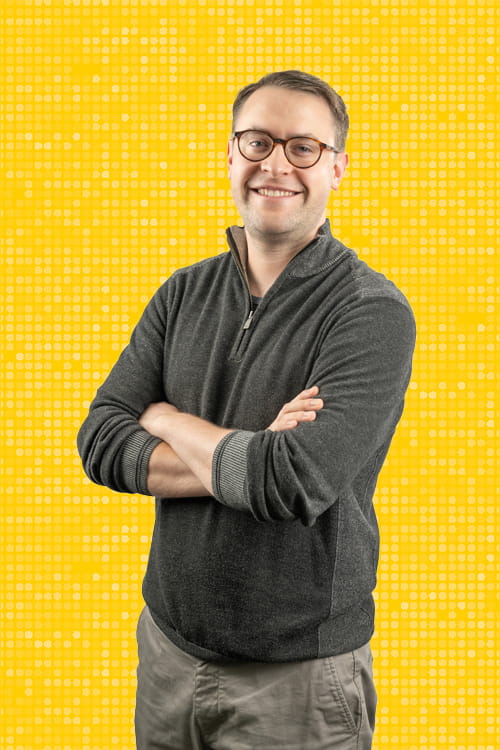
Ben Kreitlow, MD/PhD student
Sheds light on nighttime seizure risks
“Ben is a truly exceptional graduate student. He has a passion for studying epilepsy, and generally understanding underling mechanisms for neurological disease to apply research to improve the lives of patients with neurological disease such as epilepsy.” -Gordon Buchanan, associate professor
Hometown: Kanawha, Iowa
Faculty mentor/advisor: Gordon Buchanan, MD PhD, associate professor of neurology, Carver College of Medicine
What is your degree program and anticipated graduation date? MD/PhD, Interdisciplinary Graduate Program in Neuroscience (2025), Medical Scientist Training Program (2027)
Please describe your research: The Buchanan Lab is interested in why some seizures can lead to death. This is known as sudden unexpected death in epilepsy, or SUDEP. SUDEP happens more during the night, regardless of nighttime activity levels. My thesis work is looking at how the nighttime may increase risk of death following a seizure.
In simple terms, why does this research matter? Over seventy million people live with epilepsy worldwide, and anti-seizure drugs will fail in one-third of people living with epilepsy. The No. 1 cause of death in patients whose anti-seizure drugs fail is sudden unexpected death in epilepsy, or SUDEP. Across all neurological diseases, SUDEP is second only to stroke in the years of potential life lost. There is a critical need to understand why SUDEP happens and what strategies can be used to reduce the risk of death in people living with epilepsy.
How soon after starting at the University of Iowa were you able to participate in research? I started research at the University of Iowa after my first year of medical school and then joined the Buchanan Lab at the end of my second year.
How has being involved in research made you more successful at the University of Iowa? Being involved in research at the University of Iowa has made me a more empathetic person, it has made me a better mentor, a more patient person, and a deeper thinker.
What are your career goals and/or plans after graduation? After graduating from the University of Iowa Medical Scientist Training Program, I will begin Neurology Residency, where I will continue conducting clinically relevant basic neuroscience research to prepare myself to become an independent physician-scientist.
Banner location: Downtown—
